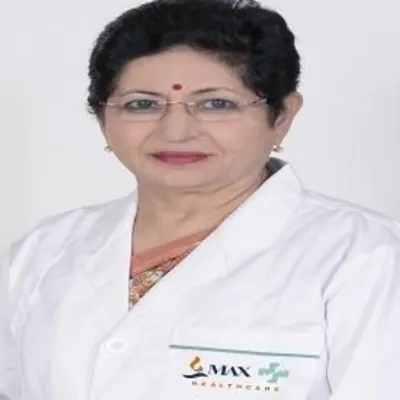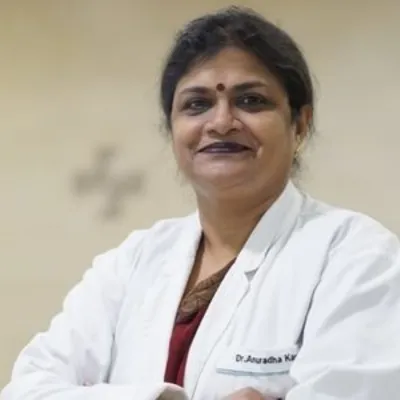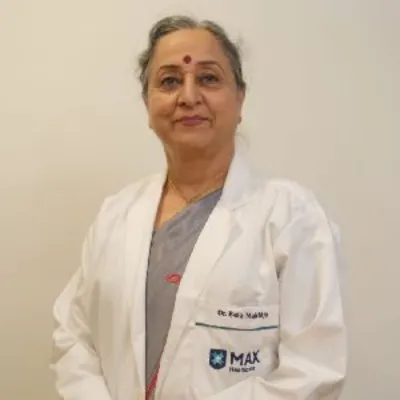Best Orthopedic Surgeons in Artemis Hospital Gurgaon
 17 December,2025
Read More
17 December,2025
Read More
Enquire now in case of any assistance needed
 07 May,2024
07 May,2024
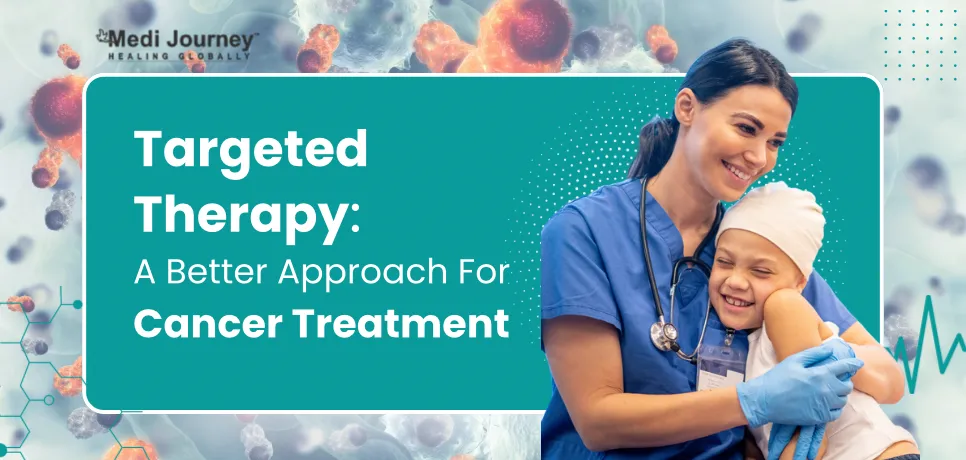
Cancer begins when a cell's genetic instructions about division/multiplication are modified. Usually, cells follow these instructions and multiply in a standard way. However, in cancer, the altered genetic instructions lead to uncontrolled division and the formation of tumors.
Targeted therapy is a treatment approach in which healthcare providers identify specific targets in cancer cells and use drugs customized to those cells' genetic instructions. These tailor-made drugs can either destroy cancer cells entirely or prevent them from receiving the instructions they need to continue growing.
Targeted therapy has revolutionized cancer treatment. The FDA has approved targeted therapy for over 15 different types of cancer. If you are fascinated by this new treatment and want to know more, you have landed on the right page. This blog aims to educate people about targeted therapy, how it works, and what kind of cancer it treats.
Fill up the form and get assured assitance within 24 hrs!
There are many types of cancer, and not all cells behave similarly. For example, breast and colon cancer cells have different gene changes that cause them to grow and spread. The environment where cancer cells grow can differ from one person to another. Some cancers have specific proteins or enzymes that send signals telling the cancer cells to grow and copy themselves.
Scientists have developed drugs that target these proteins or enzymes and block their signals. These drugs can potentially prevent cancer cells from growing or signal them to self-destruct, which can be helpful in cancer treatment.
Targeted therapy is a cancer treatment that oncologists can use before or after surgery, as well as during the later stages of cancer treatment. It is also used as a long-term treatment to try and prevent cancer from coming back or to control its growth.
The method and location of administering targeted drugs to cancer patients depend on several factors, including clinical considerations and personal preferences.
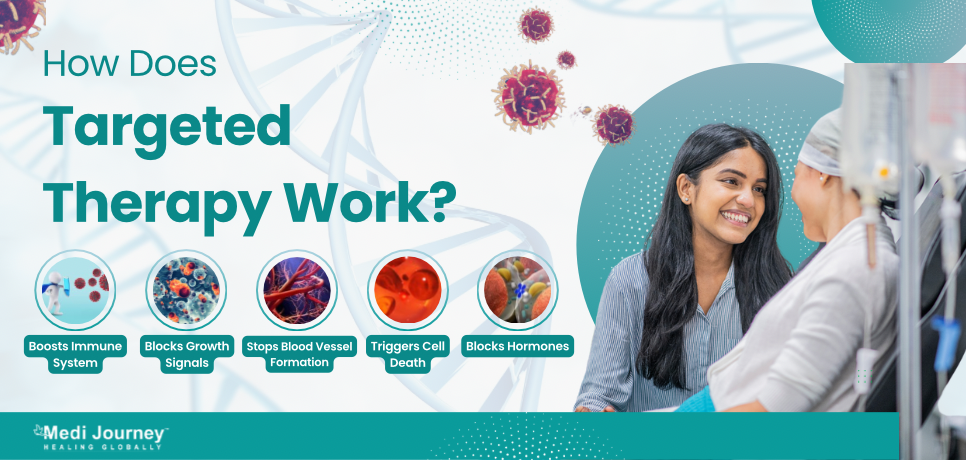
Targeted therapy as a cancer treatment targets specific proteins that promote tumor growth and spread in the body. Unlike chemotherapy, which tends to kill all rapidly dividing cells, targeted therapy is more selective in its approach. This treatment approach interferes with the specific proteins responsible for cancer growth and prevents them from functioning correctly. The following mechanisms provide an overview of how targeted therapy treats cancer.
Researchers have developed over 80 targeted therapy drugs to treat 15+ types of cancers. Further, targeted therapies have been developed to treat different mutations in the same kind of cancer. Oncologists are using targeted therapy to treat:
Knowing precisely where to aim is essential to help oncologists decide whether targeted cancer therapy is appropriate. Luckily, there are several tests available to assist in precision medicine. These tests can help determine which DNA mutation is driving the cancer's behavior and suggest the appropriate therapy, including:
By utilizing these tests, oncologists can provide patients with more personalized, effective, and safe cancer treatment.
Chemotherapy drugs are medications that target all cells that multiply quickly. They work by eliminating cancer cells. However, they can also cause damage to the healthy cells that multiply rapidly, such as those in the bone marrow, mouth, stomach, or hair. It leads to unpleasant side effects such as painful mouth ulcers, persistent nausea, infections, hair loss, and low blood cell counts.
Targeted therapy drugs, on the other hand, work differently. They focus on cancer cells while minimizing harm to healthy cells. The side effects are usually less severe than those of chemotherapy drugs.
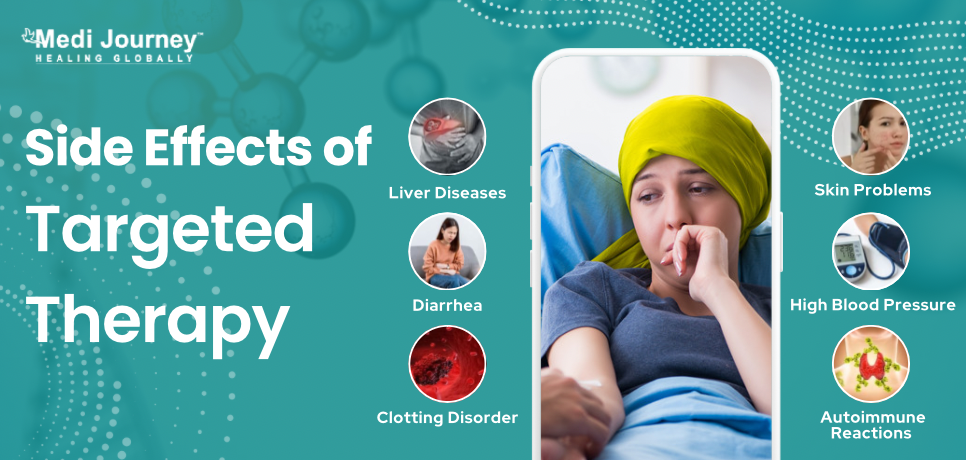
Targeted therapies are cancer treatments that explicitly target cancer cells while sparing healthy ones. They result in fewer side effects than conventional treatments like chemotherapy. However, targeted therapy may also alter cell function, which can lead to side effects that require monitoring and management.
One of the most challenging side effects of targeted therapy is skin problems. These occur because the treatment attacks the same growth factors and blood vessels your skin needs to stay healthy. Some common skin problems to watch out for include:
Skin damage is the most common but not the only side effect of targeted therapy. Liver problems and diarrhea are also observed in a few patients receiving targeted therapy. Other side effects include:
It's crucial to stay informed about the side effects of cancer treatments and find ways to manage them. By working closely with your oncologist, you can take steps to minimize discomfort and have a more positive treatment experience.
When it comes to cancer treatment, having a clear understanding of the options available is essential for successful results. Establishing trust between patients and doctors is crucial for positive outcomes. Talking to your healthcare team about targeted therapy as a recommended part of your cancer treatment plan is essential. Asking the right questions can help you make informed decisions about your treatment plan.
Confused about what to ask before getting targeted therapy? To help you get started, here are some questions you might want to consider asking your healthcare team:
Remember, your healthcare team is there to help you, and answering these questions will give you a better understanding of what to expect during the treatment process.
Cancer is one of the most challenging health problems. The complexity and diversity of cancer cell characteristics make traditional treatments difficult. However, targeted therapies have revolutionized cancer treatment. They represent a significant improvement in cancer treatment. Compared to chemotherapy, it offers a more precise approach that can yield better results and fewer side effects. If you're dealing with cancer, it is crucial to discuss targeted therapy with your doctor to see if it is the right course of action for you.
Fill up the form and get assured assitance within 24 hrs!
Doctor of Pharmacy
Dr. Deepanshu Siwach is a skilled clinical pharmacist with a Doctor of Pharmacy degree.?He has 4+?years of experience and has worked with thousands of patients. He has been associated with some of the top hospitals, such as Artemis Gurgaon.
Dr. Vivek Gupta is an experienced Surgical Oncologist with over 16 years of practice....
Senior Consultant
Medical Oncologist
Nanavati Super Specialty Hospital, Mumbai
WhatsApp UsSenior Director
Gynecologist and Obstetrician, IVF Specialist
Max Super Speciality Hospital, Shalimar Bagh, New Delhi
WhatsApp UsSenior Director
Gynecologist and Obstetrician, IVF Specialist
Max Smart Super Speciality Hospital, Saket, New Delhi
WhatsApp UsSenior Director
Gynecologist and Obstetrician
Max Smart Super Speciality Hospital, Saket, New Delhi
WhatsApp UsSenior Director
Gynecologist and Obstetrician
Max Smart Super Speciality Hospital, Saket, New Delhi
WhatsApp UsSenior Director
Gynecologist and Obstetrician
Max Smart Super Speciality Hospital, Saket, New Delhi
WhatsApp UsThe Art of Effective Communication
 17 December,2025
Read More
17 December,2025
Read More
 16 December,2025
Read More
16 December,2025
Read More
 10 December,2025
Read More
10 December,2025
Read More
 09 December,2025
Read More
09 December,2025
Read More
 05 December,2025
Read More
05 December,2025
Read More
 04 December,2025
Read More
04 December,2025
Read More
Trusted by Patients
"I am Asim from Bangladesh and was looking for treatment in India for neuro. I visited many websites to get the complete information regarding the treatment but I was not satisfied as I was getting confused. In the meanwhile, one of my friends suggested I seek help from Medi Journey as he experienced his medical journey very smoothly and was satisfied with it. They have filtered the top 10 doctors as per experience, the success rate of surgery & profile, so it helps us to choose the best treatment in India. "
"For my knee surgery, Medi Journey guided me to BLK Hospital where I received exceptional care. The team's support and the expertise at BLK Hospital exceeded my expectations. Thank you Medi Journey for making my medical journey stress-free. "
"I came from Iraq for my granddaughter's eye surgery in India facilitated by Medi Journey, due to critical cases they advised us to get a second opinion from the different hospitals before going to surgery. Finally, we went to Fortis Escort Hospital, which helped us to get more confidence for diagnosis. Fortis Escort Hospital has the best eye surgeon team with the latest instruments. Thanks to all team members for providing a high-quality treatment in India at an affordable cost. "
"I came for my hair transplant in India, before coming I was so confused about choosing the best clinic and surgeon for me. But thanks to God one of my friends had a hair transplant in India through Medi Journey. He recommended me to go with them. I am completely happy with my experience with them. They were always very fast in their responses to me. the success rate of my hair transplant surgery is 100%."
"Artemis Hospital, suggested by Medi Journey, turned out to be a great choice for my treatment. The personalized assistance and medical care were exceptional. I'm grateful to Medi Journey for guiding me to a hospital that perfectly matched my needs. Highly recommended! "
"I came from Afghanistan for my treatment in India at Jaypee Hospital, Noida. I had a fantastic experience with Medi Journey. Kudos to them for their incredible support during my medical journey. They not only took care of all the logistics but also connected me with a fantastic healthcare team. Efficient, caring, and highly recommended for a hassle-free medical tourism experience."
"I am Adam from Kano, Nigeria, one of my friends from Nigeria was facilitated by Medi Journey, and he recommended us to go with them. I sent my all reports to them and within 48 hours they reverted with 4 options from different hospitals. They helped me to get a Visa letter from the hospital, arrange pick-up from the airport, and book a hotel for me. Their team is very honest and throughout our stay in India they are with us they are caring for us like his family members. BLK Hospital is the best hospital in India with a top surgical oncologist surgeon team, a very advanced OT, and a Radiotherapy department. I wish more success to Medi Journey. "
"Great experience at the Max Hospital for my spine surgery and was successfully done. I thank my neurosurgeon and his entire team. I recommended all of my country's people to Medi Journey for treatment in India, they choose the best hospital, the best doctors, and the best cost for patients."
"I came to India from Dhaka, Bangladesh for my father-in-law's cardiac surgery at Fortis Hospital. I was confused about choosing the best surgeon for him before coming, but their team helped me to choose the best hospital and best cardiac surgeon in India with very good cost and 100% success rate of surgery. I am very happy with the services, really they make my journey so comfortable that make me feel at home. Thanks again and I like people to choose "Medi Journey" as your travel guide. "
"I am Mohammad from Bangladesh came to India for my general health checkup. Medi Journey offers me the complete package including Pick-up from the airport, hotel services, and 24-hour assistance. They guide you to choose the best hospital in India, the best cost of treatment with top-most doctors and give you complete information about hotel booking, and pick-up from the airport before coming to India They have the best team to help. Always choose Medi Journey for your treatment in India."

